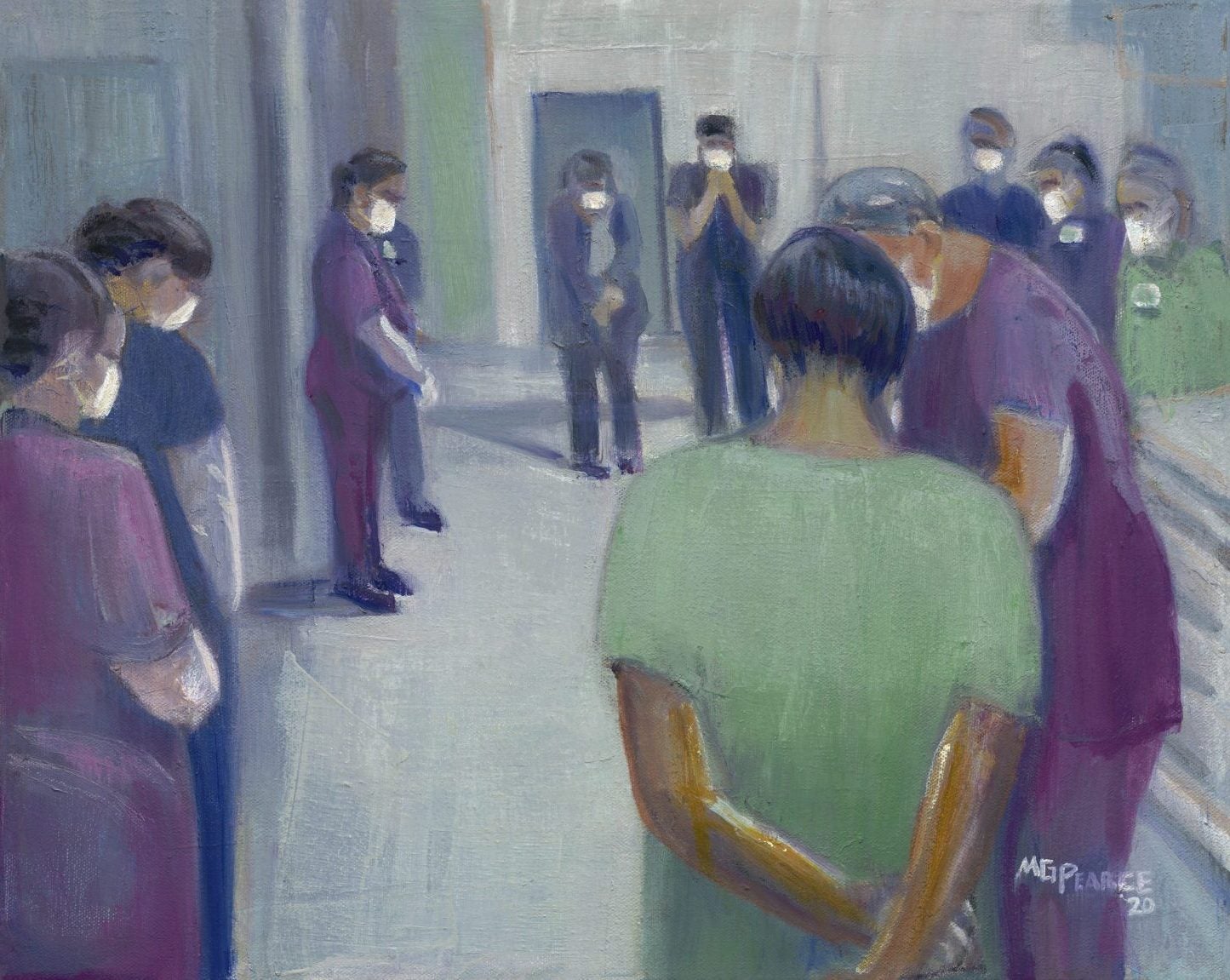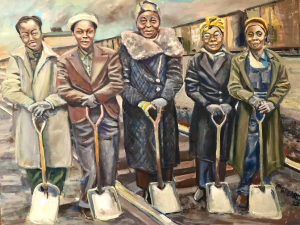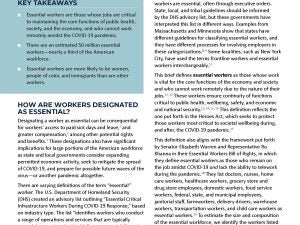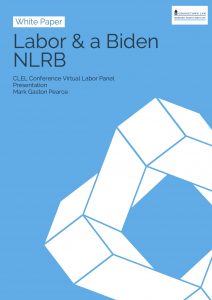Publications

Worker Outbursts, Workplace Rules and a Resurgence of Worker Voice
WRI RA Mell Chhoy published an article in the Georgetown Journal of Poverty Law and Policy with WRI Director Mark Gaston Pearce. In the article the coauthors discuss how recent worker victories conflict with the continued challenge of exerting collective action.
The article seeks to discuss the history and development of case law on protected concerted activity, consider how to reconcile the National Labor Relations Act with employer obligations to curtail discrimination, and introduce workplace rules as a mode favored by employers. Furthermore, this Article deliberates on how recent decisions signal the National Labor Relations Board’s impending treatment of worker speech against racism, namely worker invocation of Black Lives Matter in the workplace

WRI RA Shiva Sethi and Institute Director Mark Gaston Pearce Discuss Partial Closures to Chill Union Activity
WRI RA, Shiva Sethi, and WRI director, Mark Gaston Pearce, published online with the Georgetown Journal of Poverty Law and Policy. They discuss Chipotle's closure of a location in Augusta, Maine following worker organizing. The authors discuss the application of the Darlington line of cases on "partial closures" of business locations intended to chill section 7 activity elsewhere in the business to Chipotle. They propose that the analysis should center terminated workers to offer better protections and that a legislative fix be introduced to clarify how the Board and courts deal with such cases going forward.

NLRB: Severance Packages Can’t Buy Workers’ Silence
WRI research assistant, Percy Metcalfe, explains how the NLRB, in a recent decision, cracks down on employers who seek to silence terminated workers through coercive severance agreements.

Organizing and the College Athlete
WRI Direct, Mark Gaston Pearce, and GULC researcher assistant, Daphne Assimakopoulos, pen this report on the shifting terrain for student organizers and athletes. Summarizing history and recent legal developments, Pearce and Assimakopoulos argue that the current arrangement presents an unsustainable "plantation dynamic" under which universities and coaches profit off the labor of predominantly black student-athletes.

The Proposed Independent Contractor Rule Under the FLSA
In an attempt to address misclassification, the Department of Labor is proposing a new set of rules to determine which workers are workers and which are independent contractors for the purposes of the Fair Labor Standards Act.

The New Principle-Practice Gap: The Disconnect between Diversity Beliefs and Actions in the Workplace
Jamillah Bowman Williams, Georgetown University Law Center | Jonathan Cox, University of Central Florida - Department of Sociology
Following increased calls for racial justice, many organizations have pledged to play their part in dismantling systemic racism. One common step leaders take is to invest in diversity and inclusion programs. Yet, despite organizations’ bold claims to value diversity and the investment of billions of dollars on related efforts, workplace discrimination continues to be a major factor in the lives of people of color. Additionally, existing research highlights a principle-policy gap, wherein people--particularly White Americans--espouse support for the principles of diversity, yet their support wanes for policies that address inequalities. In this survey study, we explore attitudes about organizational diversity efforts and further examine how these beliefs shape workplace decision-making. Our analysis of open-ended responses reveals a major disconnect, where individuals say diversity is important in principle, yet in practice do not take actions to further the goals of diversity and inclusion programs, a phenomenon we label the “principle-practice gap.” We use diversity ideology as the theoretical link to help explain why this subtle resistance to action might occur. We find that the principle-practice gap is more pronounced for those who view diversity as important because it improves outcomes. Conversely, those who think diversity is an important goal because of workplace inequality are more likely to take action, such as promoting a Black man. These findings help reveal which people endorsing diversity in principle are more likely to take action and which tend to be more performative and less connected to practices that counter structural inequality.

WRI RA Keniece Gray Wins Prestigious Labor Scholarship After Publishing on how #MeToo Reforms Fall Short For Women of Color
The Workers' Rights Institute is proud to announce that RA Keniece Gray has been awarded the prestigious William J. Curtin Endowed Scholarship in Labor Relations after publishing in Summer 2022 on the lack of intersectional awareness in #MeToo reforms.

Who Are Essential Workers?
This brief, published jointly with the Workers’ Rights Institute, provides an inclusive definition of essential workers, and finds that women, people of color, and immigrants are over-represented in the essential workforce and face increased risks related to COVID-19.

